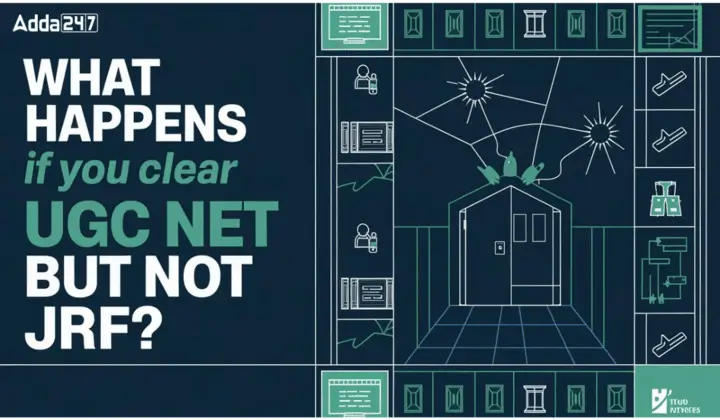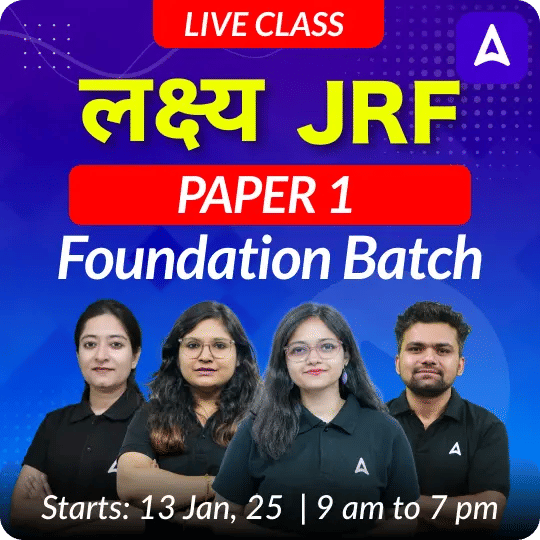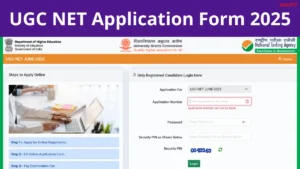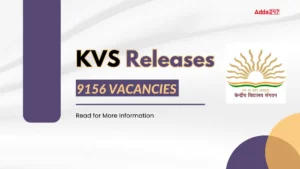Table of Contents
UGC is set to release the much-awaited UGC NET Result soon for the December cycle. The UGC NET certification qualifies candidates for a Junior Research Fellowship (JRF) or a PhD. As JRF is a prestigious and competitive opportunity, only the top 6% of UGC NET-qualified candidates are awarded the fellowship, making it one of the toughest cut-offs to crack. This raises an important question—what happens if you clear UGC NET but not JRF? In this article, we will clarify the path ahead and explore the next steps.
Understanding UGC NET and JRF
The UGC NET exam has two distinct eligibility criteria. While both qualifications are achieved through the same exam, the JRF cutoff is typically higher than the Assistant Professor cutoff. This means it’s possible to clear the NET for Assistant Professor but not secure JRF.
- Qualifying for Assistant Professor: Candidates who meet the minimum cutoff marks for their category are declared eligible for the role of Assistant Professor in Indian universities and colleges.
- Qualifying for JRF: Candidates who score above a higher cutoff are eligible for the Junior Research Fellowship, which provides financial support for pursuing research and PhD programs.
What happens if you clear UGC NET but not JRF?
Clearing the prestigious UGC NET exam is no small feat, even if you didn’t secure the JRF this time. Remember, every step forward in your academic journey is a victory, and countless doors are still open to you. You can still explore several promising paths ahead. The UGC certification opens doors to rewarding academic and research careers, allowing you to pursue your goals with passion and dedication. Now, let’s discuss what you can do next in this case.
- Eligibility for Teaching Roles:
- The primary advantage of clearing UGC NET is that it makes you eligible for the post of Assistant Professor in universities and colleges across India. This is a significant milestone for those aiming for a career in academia.
- However, competition for teaching positions is fierce, and NET qualification alone does not guarantee a job. Candidates may still need to clear state-level eligibility tests (like SET/SLET) or university-specific recruitment processes.
- No Financial Support for Research:
- One of the key benefits of JRF is the financial assistance it provides to candidates pursuing research or a PhD. Without JRF, candidates will not receive the monthly stipend (currently Rs. 37,000 for the first two years and Rs. 42,000 for the remaining three years) or the contingency grant for research expenses.
- Aspiring researchers may need to explore alternative funding options, such as university scholarships, government schemes, or private grants.
- Opportunity to Reappear for JRF:
- Candidates who clear NET but not JRF can reappear for the exam in subsequent cycles to improve their scores and qualify for JRF. The UGC NET is conducted twice a year, providing ample opportunities to retake the test.
- It’s important to note that the validity of the NET certificate for Assistant Professor eligibility is lifetime, so candidates do not lose their teaching eligibility even if they reappear for JRF.
- Career Growth and PhD Admissions:
- While JRF is not mandatory for pursuing a PhD, it is highly advantageous. Many universities prefer candidates with JRF for PhD admissions due to the financial support and research experience it signifies.
- Without JRF, candidates may face challenges in securing admission to top-tier institutions or may need to rely on self-funding or teaching assistantships to support their research.
- Alternative Career Paths:
- Clearing UGC NET opens doors to various academic and non-academic roles. Apart from teaching, candidates can explore opportunities in educational consulting, content development, and research organizations.
- Additionally, NET qualification is often considered a valuable credential for roles in government and public sector undertakings (PSUs) that require expertise in specific subjects.
Next Step for JRF Aspirant
We have discussed the paths a candidate can follow if they do not clear the cut-off for JRF but successfully clear the UGC NET exam. But what about candidates who aspire to become a JRF exclusively, those who have dreamt of pursuing a career solely in the research domain? These candidates need not be disheartened, as this is not the end. Candidates can still aim for the next attempt, as there are no limits to the number of attempts. This time, give it your best effort—stay motivated, refine your preparation strategies, and approach your goal with renewed determination and focus. Each attempt brings you closer to achieving your dream career in research.
- Focus on Strengthening Your Profile: Enhance your academic credentials by publishing research papers, attending conferences, and gaining teaching experience. This will improve your chances of securing a teaching position or PhD admission.
- Explore Funding Options: Look for alternative scholarships and grants offered by universities, government bodies, and private organizations to support your research aspirations.
- Prepare for JRF in Future Attempts: Analyze your previous performance, identify areas of improvement, and prepare strategically to clear the JRF cutoff in the next attempt.




 UGC NET Application Form 2025 Starts for...
UGC NET Application Form 2025 Starts for...
 Can DELED Qualified Candidates Apply for...
Can DELED Qualified Candidates Apply for...
 KVS Recruitment 2025 Out, Check Kendriya...
KVS Recruitment 2025 Out, Check Kendriya...














